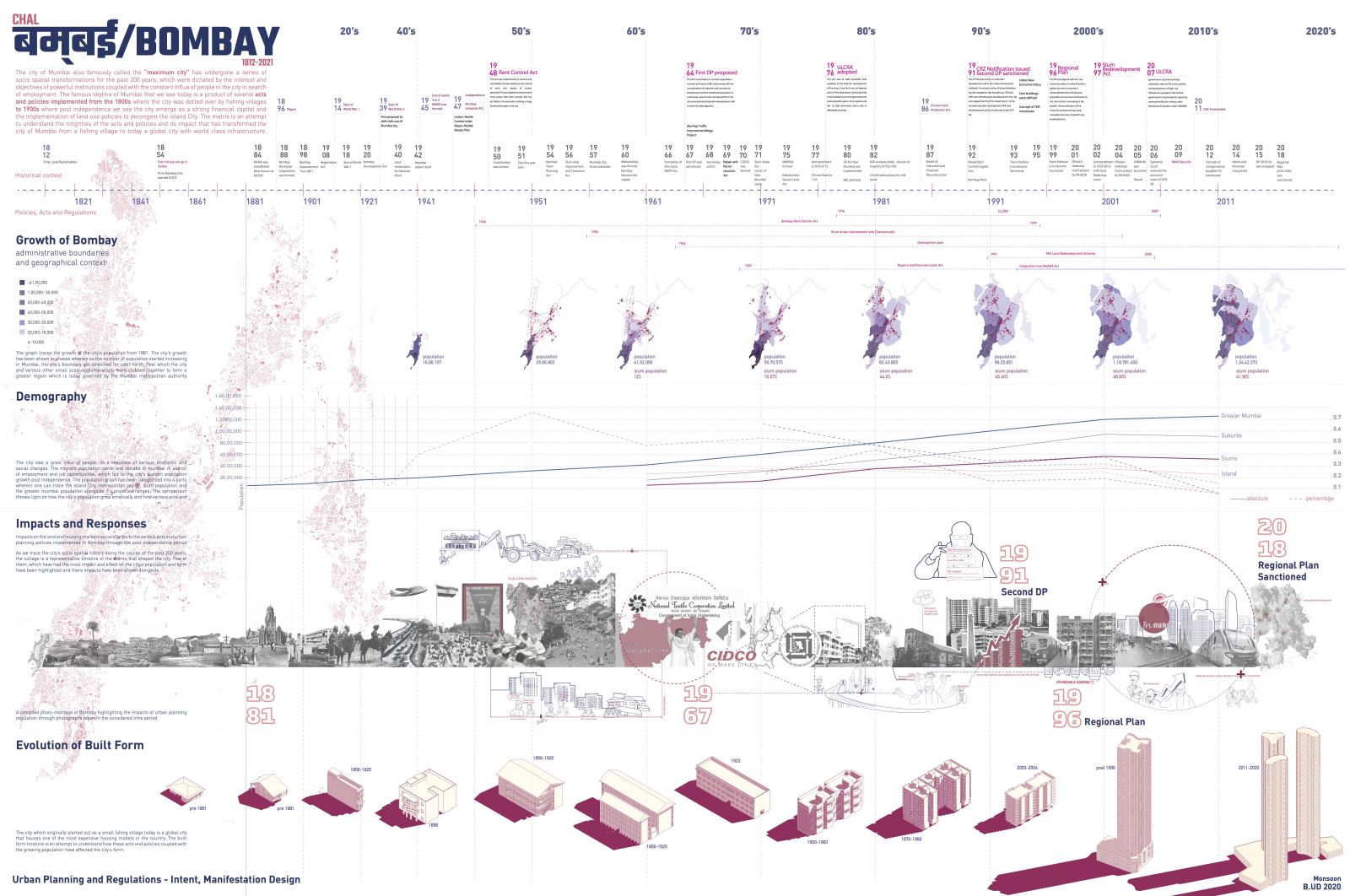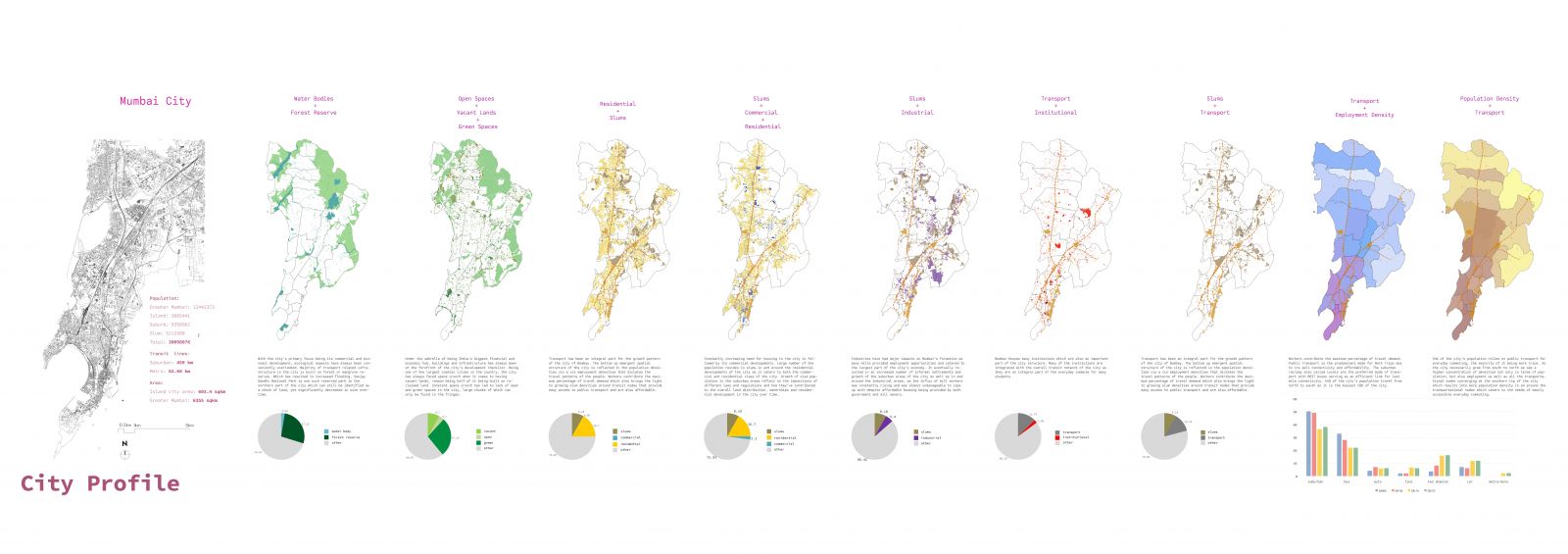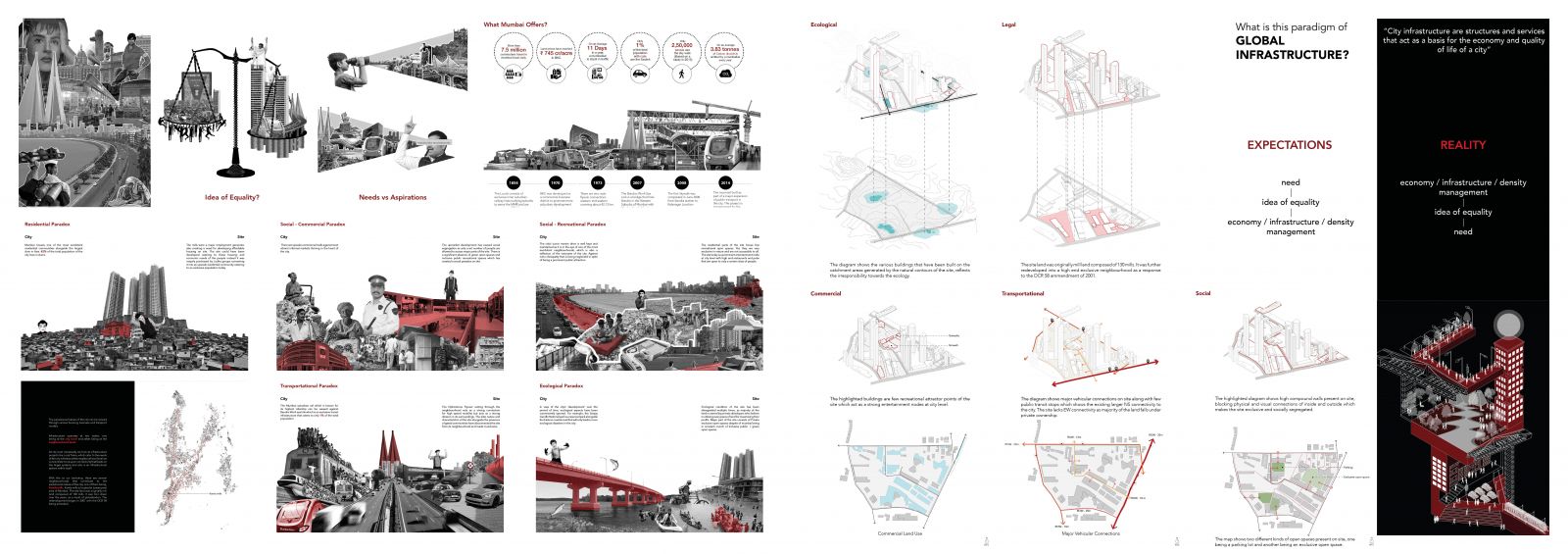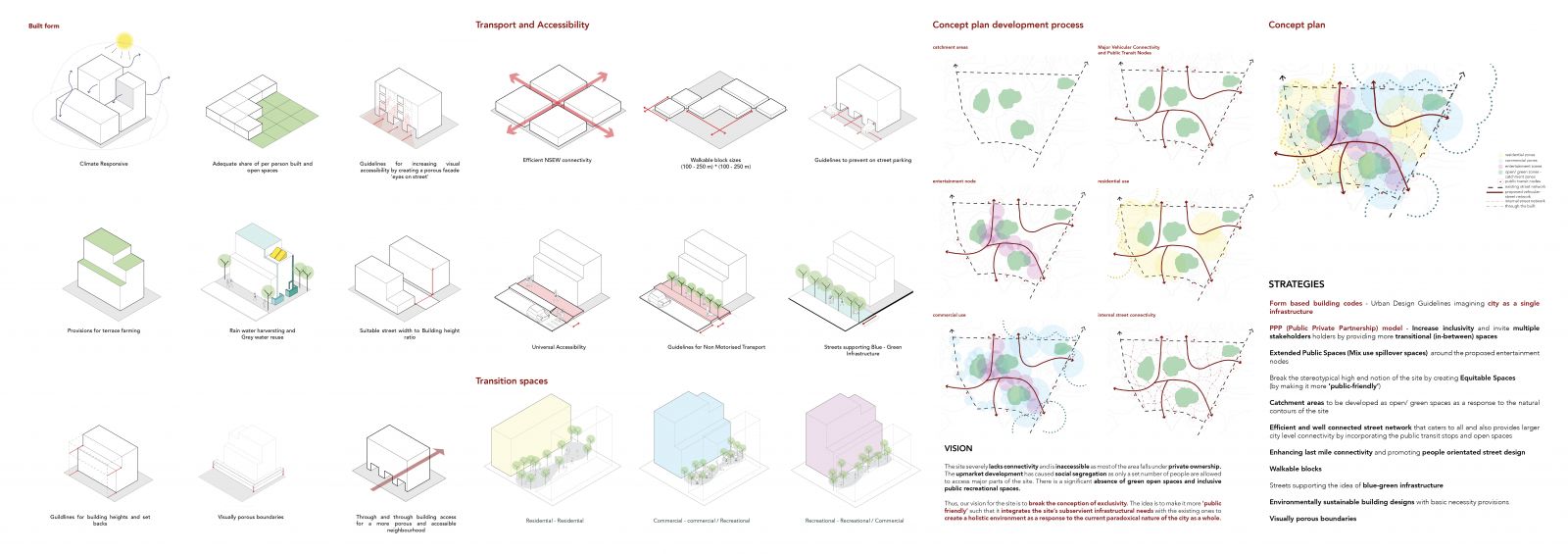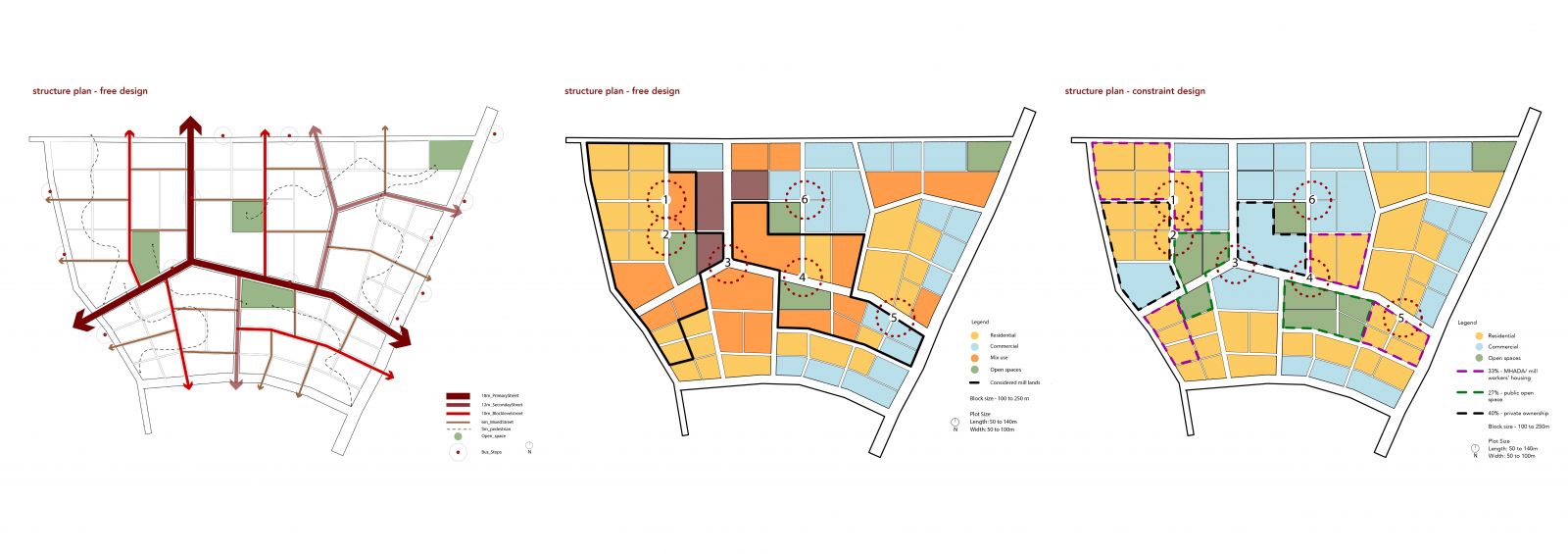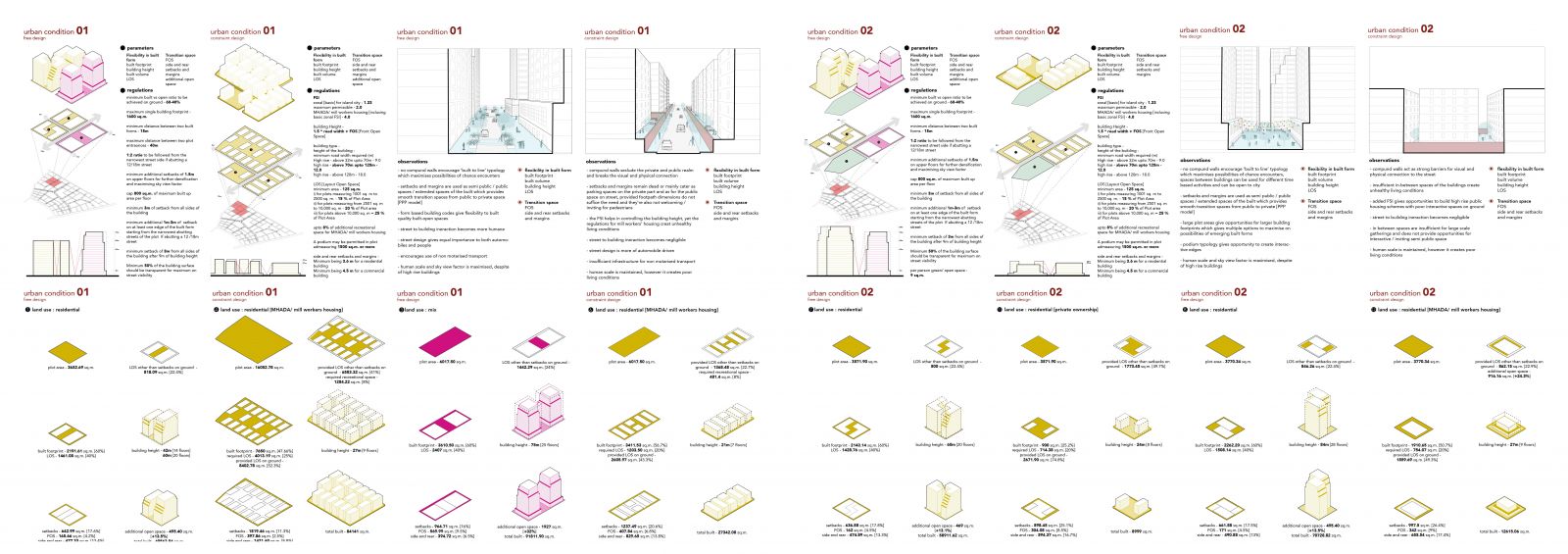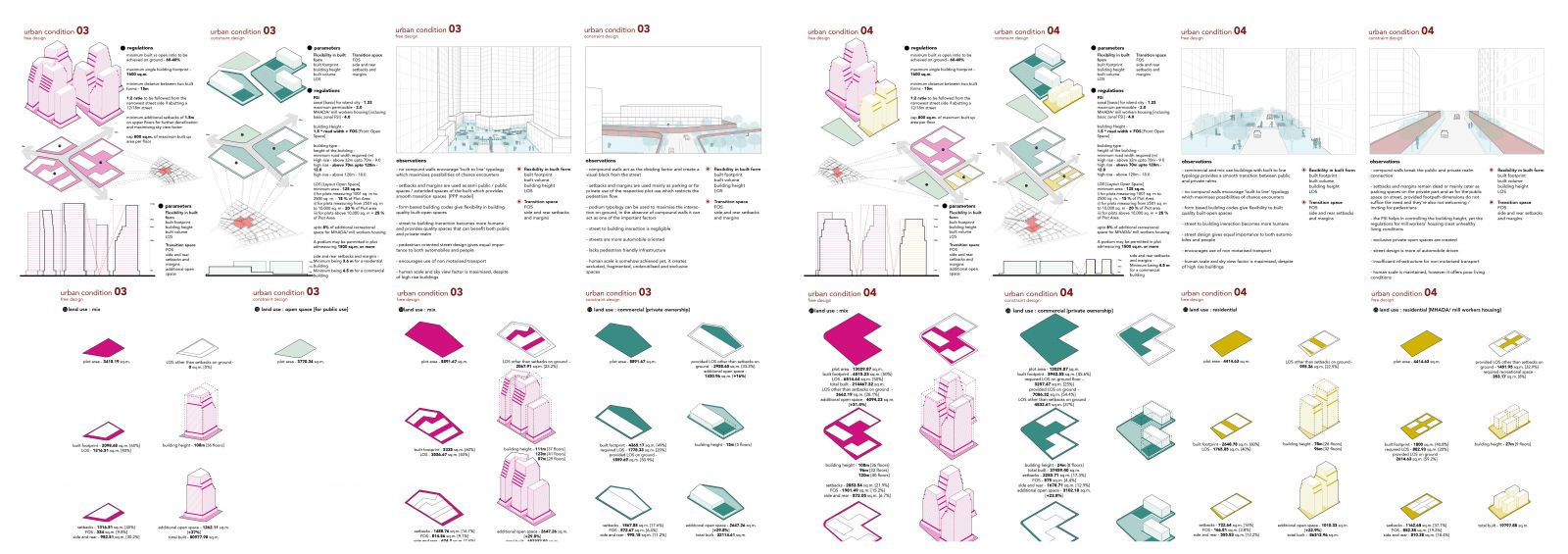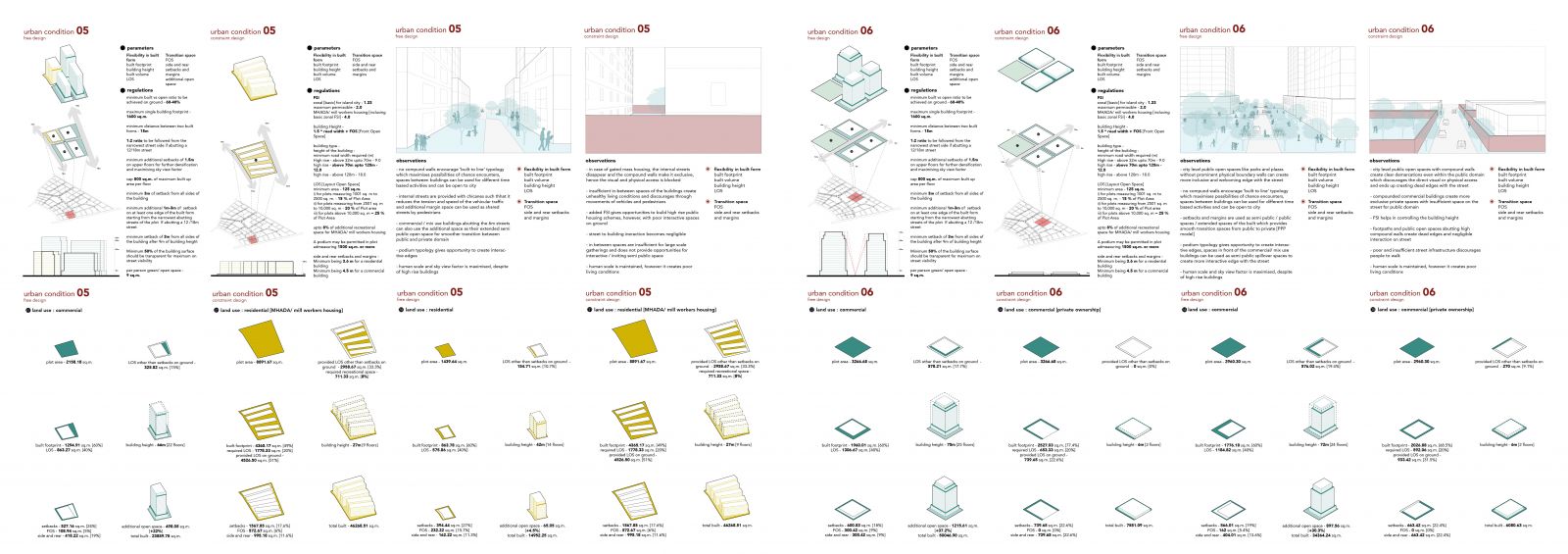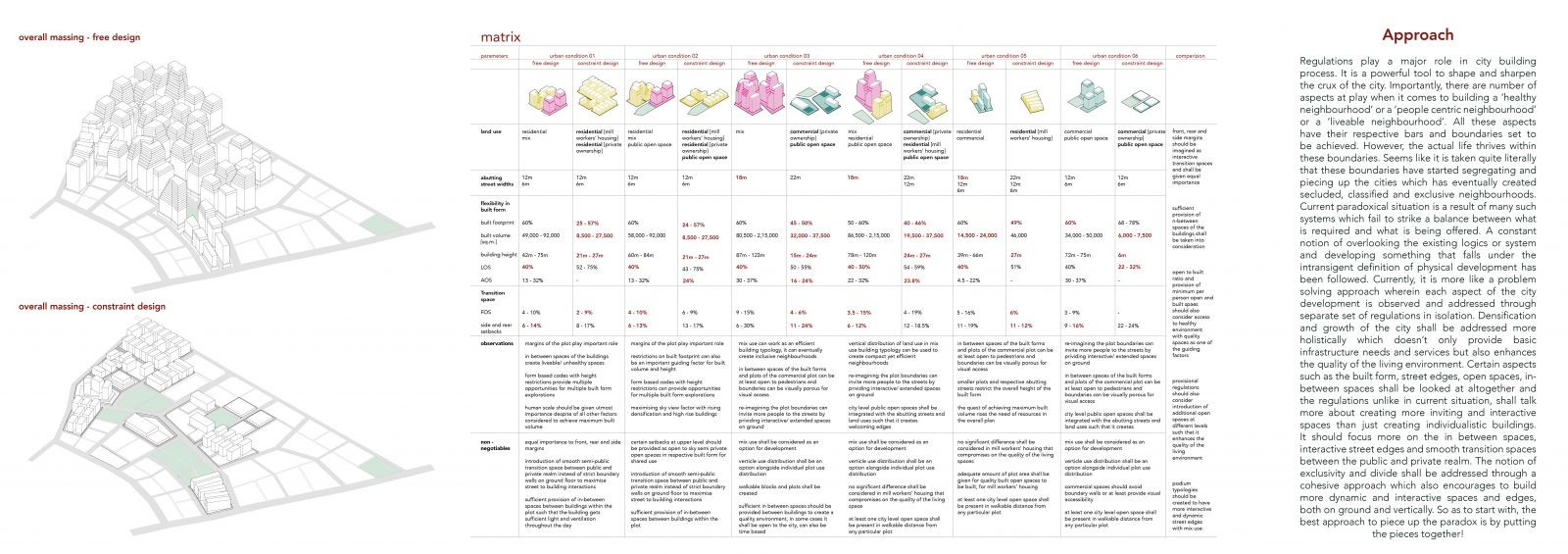Your browser is out-of-date!
For a richer surfing experience on our website, please update your browser. Update my browser now!
For a richer surfing experience on our website, please update your browser. Update my browser now!
The project focuses on drawing a new perspective on designing regulations to create quality built-open spaces in the city. The first module defines different set of infrastructures and identifies the paradoxical nature of the city, in case of Bombay. The second module proposes set of regulations focusing on the private realm of the city. It explores the possibility of form based building codes. The last module focuses on a comparative analysis, examining the effects of imposed set of existing regulations with comparative analysis and possible approach.
View Additional Work